© Edm
“An act of economic self-harm.” That was how the prospect of Britain leaving the European Union was described by Britain’s Prime Minister of the time, David Cameron, before the referendum that would separate Britain from its EU neighbours. Cameron had campaigned hard for Britain to remain inside the Union, but the ultra-nationalism of Boris Johnson and his immediate coterie of back-benchers, keen for ministerial posts, won the day, albeit narrowly (in fact it was England and Wales that voted to leave; Scotland and Northern Ireland voted to remain). “I was absolutely clear about my belief that Britain is stronger, safer and better off inside the EU,” Cameron pointed out. “I made clear the referendum was about this, and this alone, not the future of any single politician, including myself. But the British people made a different decision to take a different path.” Cameron was visibly distressed by the outcome of the UK referendum and decided to step aside rather than be blamed for what he (rightly) foresaw as the chaos to follow. “As such I think the country requires fresh leadership to take it in this direction,” he said. For Britain, the possibility of being inside as a whole but outside in certain respects, the model employed by Norway, was never an option. The referendum seemed to make it clear that the British people had – narrowly – rejected having any rules imposed on them or their country from Brussels.
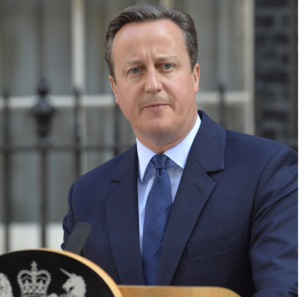
Cameron said he accepted the judgement of the British population, despite it being “like planting a bomb under the British economy,” as he had put it during his campaign to stay in.
The mistake he seems to have made was to believe that ordinary voters understood or cared about the economy. This had been, according to some observers, “a gut decision, not a head decision”. In the run-up to the vote, back-bench Conservative MPs had begun to see the Leave campaign as reflecting most closely the public mood they were meeting on the doorsteps in their constituencies. Cameron had negotiated some small changes to Britain’s deal with Europe, but it cut no ice with voters. As the right-wing (and consistently anti-European, indeed ‘anti-foreigner’) Daily Express put it, “Against the backdrop of the deepening, self-inflicted migration crisis and continuing economic paralysis across Europe, much of the British public seems in no mood to accept his meaningless fudge. When our very nationhood is at stake, voters rightly understand that hollow verbiage and inconsequential tinkering are no answer.” It would appear that the writer of the article, Leo McKinstry, was blaming the EU’s belief in free movement and cultural diversity for the influx of would-be migrants, who had been trying to reach the UK from Calais by boat, rather than their abject poverty and their understandable lack of hope for a brighter future. That may also have been the motivation for many of those who voted to leave. In most countries – especially the relatively well-off ones – nationalism lurks not far below the surface, often accompanied by out-and-out racism.
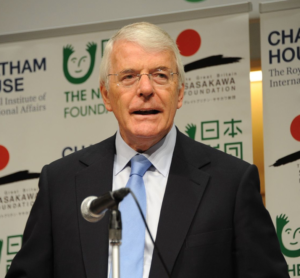
I was a journalist in the Brussels press corps at the same time as Johnson was, with his paper, the Daily Telegraph, seeming to lap up his articles, despite them being, by and large, pure fiction. It got so serious during the premiership of John Major (also a Conservative) that his government issued a booklet listing Johnson’s deliberate untruths, just to show people that his ministers weren’t doing anything about the events Johnson had been reporting because they had never taken place. I wish I had kept mine; it was quite funny. I especially liked his claim that British trawlermen would be obliged to wear hairnets at sea as a hygiene precaution. Johnson later wrote that he’d spent some of his “most joyous hour,” as he put it, writing what he called “foam-flecked hymns of hate to the latest Euro-infamy”, starting with this claim that the EU planned to ban prawn-flavoured crisps. It was the UK government that forgot to include prawns in its list of flavourings sent to Brussels for inclusion in a list of approved flavourings. When this error was spotted, it was corrected immediately. Long after this became apparent and widely known, Johnson continued to cite the alleged ‘ban’ as evidence of EU meddling, knowing it be untrue. There are many more examples. The problem is that although the articles were laughably inaccurate (and deliberately so) they proved so popular with readers that other newspapers started to follow suit, instructing their Brussels correspondents to come up with similarly anti-EU nonsense.
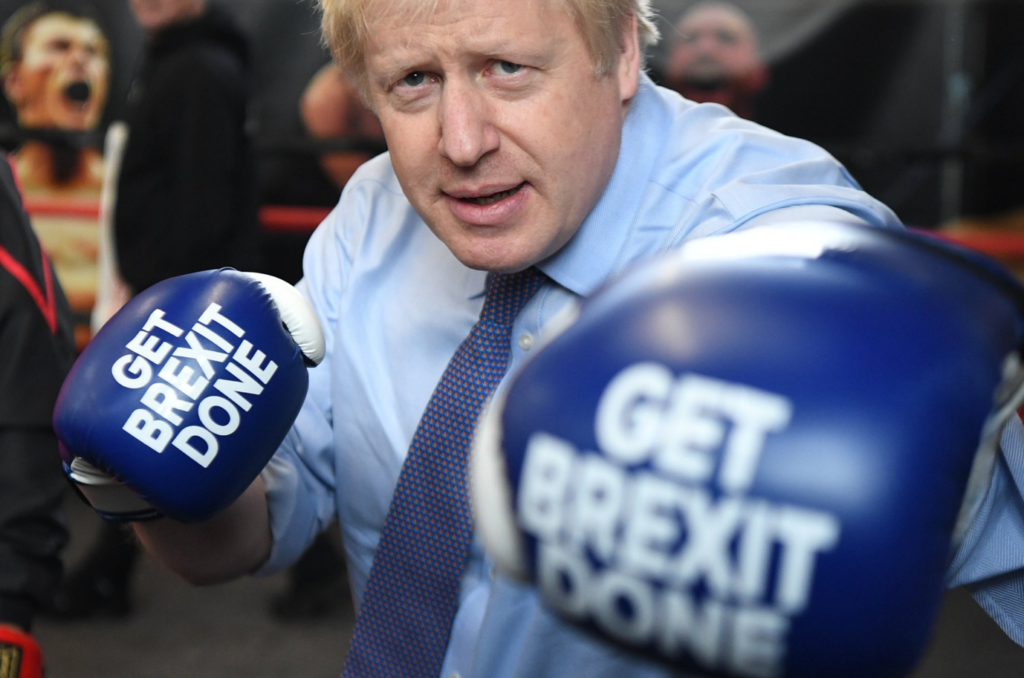
But Johnson cannot be held solely to blame for the outcome. The EU was often secretive itself and certainly opaque in its dealings. But the referendum conformed to a pattern that was becoming familiar in the West. As the French economist Thomas Piketty, Director of Studies at the École des hautes études en science sociales (EHESS) and professor at the Paris School of Economics, wrote in one of his columns for Le Monde newspaper (since reprinted in his new book, “Time for Socialism”), there may be more to it. “Since the crisis in 2008, and even more so since Trump, Brexit, and the explosion of the xenophobic vote all over Europe,” he wrote, “there is a better appreciation of the dangers posed by the rise in inequality and the sense of abandonment in the working classes, so that many now understand the need for a new social regulation of capitalism.” Xenophobia certainly seems to fit the direction of travel as a description, in this case.
SHAKING THE ‘PEPPA’ POT
The important question is: how has Brexit, as it has been dubbed, impacted on Britain’s economy? Has it turned out to be, as David Cameron predicted, “an act of economic self-harm”? It is actually very hard to be certain because, of course, the COVID-19 pandemic has had a massive impact of its own.
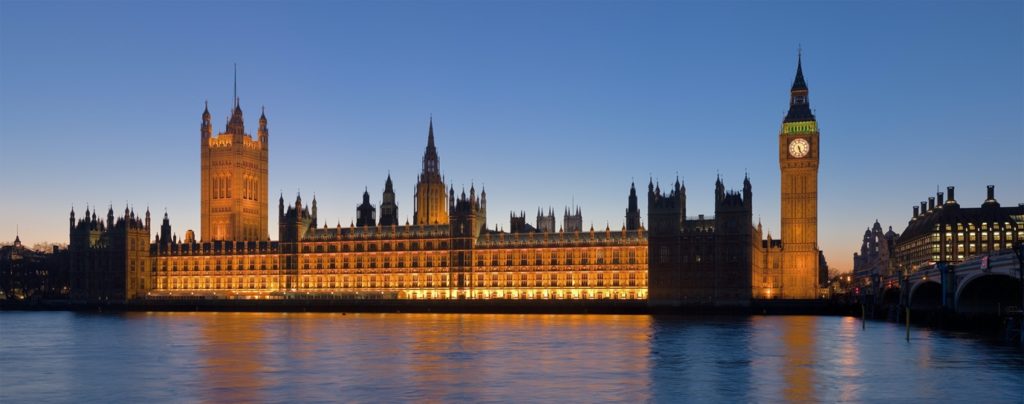
However, even the House of Commons Library is not sounding optimistic in its assessment. “The ongoing economic effects of the pandemic and the publication of the first data showing the impact of the end of the Brexit transition period on UK trade paint a grim picture of the UK economy,” it says. “But the UK’s vaccination programme and the first stages of the Government’s roadmap to ease lockdown restrictions offer glimpses of cautious optimism.” However, there is concern about the level of public borrowing. The web page goes on to praise the COVID vaccination programme, however, and says that “the Government’s roadmap to ease lockdown restrictions offers glimpses of cautious optimism.” The value of UK goods exported to the UK fell by 40% between December 2020 and January 2021, says the UK’s Office for Budget Responsibility (OBR), while the value of imports from the EU fell by 29% and overall trade with the EU represented just 44% of the UK’s trade in goods in January 2021, the lowest monthly share of UK trade since comparable records began in January 1997.
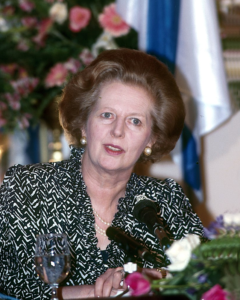
The fact seems to be that having used anti-European feelings to help him get Britain out of the EU, Johnson seems to find himself in hock to the Conservative right, some of whom would apparently like him to turn into another former UK premier, Margaret Thatcher. It was never going to be a viable transition. Johnson likes to joke and make people laugh, coming across as some kind of amiable clown, always amusing, while Thatcher, whatever people thought of her politics, was professional and dedicated, rarely making embarrassing mistakes. Johnson makes them all the time. It’s this insistence on a return to kind of right-wing Conservative ideology, strangely, that threatens to unseat Johnson as Conservative leader. He now faces attacks by the man who helped spearhead his Brexit campaign, David, now Lord Frost, who has stated publicly that Johnson must switch the UK towards a low-tax, free market economy, starting by scrapping his plans to raise national insurance, which is a kind of tax on earnings and self-employment profits which is used to fund some state benefits, such as statuary sick pay or maternity leave. It is scheduled to rise by 1.25% in April and Lord Frost says it shouldn’t if Johnson expects victory in the next election.
Thatcher would never have made the bumbling speech Johnson failed to deliver properly to members of the Confederation of British Industry at the Port of Tyne in South Shields, in which he repeatedly lost his place, left long pauses and rambled at some length about the children’s cartoon character Peppa Pig.

He also imitated the sound of a car accelerating. It could have been carrying away the last of his credibility in eyes of some of his own back-benchers. It put me in mind, strangely, of Falstaff’s speech in Shakespeare’s Henry IV part One, when he is trying to convince the Prince that he had been attacked and yet had bravely fought off his assailants. “I have peppered two of them: two I am sure I have paid, two rogues in buckram suits.”
Falstaff, himself a clownish and untruthful figure, was lying and confused but it seems that in this case it is Johnson himself who was “Peppered” (or perhaps “Peppa-ed”) by talking about Peppa.
The media loved it and the embarrassing`, stuttering speech was the lead story on that night’s television news. He will not be allowed to forget it. Even the interviewer who spoke to him afterwards asked if he was ‘alright’ with what seemed like genuine concern.
A MAN OF HIS WORD?
Now we turn to the post-Brexit agreement the UK made with the EU over Northern Ireland. I remember meeting up with John Hume of the Social Democratic and Labour Party, Doctor Iain Paisley of the Democratic Unionist Party (which he had founded) and Ulster Unionist Jim Nicholson, just as they emerged from the office of the then European Commission President Jacques Delors. They had successfully negotiated – together – a deal with the EU that would underwrite peace in the province for decades.

They had a right to look jubilant and proud and I shook hands with all three (clearly all pals together, which was very rare) before interviewing them together; a real moment to celebrate after so much heartbreak. It finally put an end to many years of murder and terrorism. John Hume had given speeches about how important peace was; I had attended one such meeting in a small French town some 30 or 40 kilometres from Strasbourg, when he praised the EU for providing the opportunity for “jaw-jaw” that was so much better, he said, than “war-war”. He gave the speech in French and a very impressive speech it was, too. But if he, Paisley and Nicholson though that meant the end of the so-called “Troubles” for all time, he reckoned without Boris Johnson’s government.
With both the UK and Ireland part of the EU’s Single Market, trade could flow freely between the Republic of Ireland and the North, as well as between the North and the UK mainland. It was one, big, barrier-free market, until Brexit got in the way. With both the UK and Ireland in the EU, crossing the border was as simple for citizens and goods as visiting your nearest neighbouring town. Clearly that couldn’t continue under differing regimes, so rather than impose a new border on the island of Ireland, the UK placed a border in the North Sea. UK traders, though, have since complained about the bureaucratic form-filling required to send goods to Northern Ireland.

The UK’s Foreign Secretary, Liz Truss, says that must end, despite Britain having signed an agreement with the EU. The so-called Northern Ireland Protocol leaves the province inside the EU’s single market for goods so that cross-border trade with the Republic could continue without hindrance. Truss says it is interfering with internal trade across the UK, so it must go, effectively ending the need for Northern Ireland traders to notify the EU of any exports outside the zone. She has also stated that she will not permit final decisions to be made by the European Court of Justice. It’s hard to see how the EU could agree to these demands, which Truss set out in a newspaper article, thus further angering Brussels. The EU argues that Northern Ireland cannot enjoy the benefits of being in the Single Market if the EU doesn’t have some control; after all, it’s what was agreed when the Brexit deal was done. It’s the UK that wants to renege on it. Truss, for her part, is threatening to invoke what ‘s known as Article 16 and she will be assisted in her negotiations by former Conservative member of the European Parliament (and qualified football referee), Chris Heaton-Harris, now Minister of State at the Foreign, Commonwealth and Development Office.

According to the Institute for Government, “Article 16 allows either party to undertake unilateral safeguarding measures if the protocol leads to ‘serious economic, societal, or environmental difficulties’ that are liable to persist, or to diversion of trade”. Basically, the UK is demanding the right to change the agreement it signed with the threat of action that would, effectively, suspend trade.
At the time of writing, the issue remains unresolved and subject to further negotiation, assuming the EU has any confidence in UK promises any more. What’s more, it could jeopardise the entire deal under which Britain left the Union.
In October 2021, Johnson obliged every one of his elected members to support his Northern Ireland deal, which he now says must be changed or abandoned.
WAVING THE FLAG, BUT WHY?
Many UK citizens are concerned about the effect of Brexit on European travel. Certainly, the days of UK citizens driving through France, Belgium, Germany, and Italy, for instance, without even noticing they’ve crossed a border are over, although travel is still possible, COVID restrictions permitting. If you’re driving, you must, of course, ensure that your driving licence, vehicle logbook and insurance are up to date and apply the new identifying stickers to your vehicle, front and back.

They no longer say “GB” (for Great Britain), like the one my father put on his Standard Vanguard estate car in 1956 to drive the family through Belgium, France and Germany to reach Austria, where he was to meet his employers in person at their paper mill, near Vienna. I do remember (although I was only 8 years old at the time) having to stop at border crossings so that my father could show our passports and other documents to border guards. Now the identification plates (just stickers these days) say “UK”, and most of the ones I’ve found for sale on-line also carry a Union Jack flag. Britain has become a very nationalist country under Johnson. It’s strange, because it suggests we’ve gone backwards since the days of ancient Rome.
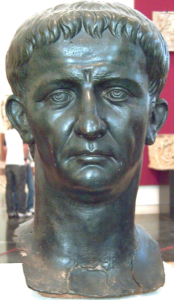
In AD 48, the Emperor Claudius had a long argument with the Senate in which he argued (successfully) that the most important citizens of Gaul and other conquered territories should be allowed Roman citizenship and, indeed, entry to the Senate. He pointed out to them that the founder Romulus’s successor as ruler, Numa the Sabine, was a foreigner who came from outside Rome. Many senators disagreed with extending the same rights to outsiders in their day. How familiar that argument sounds! But both the emperors Trajan and Hadrian had been Spaniards, while as Dan Jones explains in his splendid new book, Powers and Thrones, “Septimius Severus, who seized power in AD 193 from four rivals, and clung to it until AD 211,was born in Libya (Leptis Magna) to a North African father and a Syrian Arab mother; his successors therefore shared this African-Arab heritage.” And Rome was certainly none the worse for that. This rather shows up the sheer nonsense of the claims by some that Europe will be ‘overrun’ by Africans, Arabs and others, ‘diluting’ Europe’s supposedly ‘pedigree’ bloodline and thus destroying our ‘European-ness’. It’s strange to think that some of today’s Europeans are more racist and small-minded than an emperor of Rome two millennia ago. Remember, it wasn’t this openness to foreigners on the part of Claudius that brought down Rome’s mighty empire, either; it was the selfish ambition of certain leaders who divided up what had been a single polity into separate administrative provinces to suit themselves.
The way in which Johnson’s wholly fictional ‘news’ stories, normally carried on the front page of the Daily Telegraph, were picked up by other journals and either repeated or copied in style by pressurized journalists undoubtedly affected the outcome of the referendum. It was a strange twist, because he doesn’t seem to have always been against the EU. In a column published in 2013, Johnson wrote that if Britain were to leave the EU, the British people would have to recognise that “most of our problems are not caused by Brussels.” He also said that “the question of EU membership is no longer of key importance to the destiny of this country”.
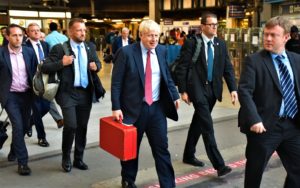
So, if Brussels and the EU were not to blame for Britain’s decline, what was? “Chronic short-termism,” was the problem, he suggested, together with “inadequate management, sloth, low skills, a culture of easy gratification and underinvestment in both human and physical capital infrastructure.”
FORTUNA FAVET AUDAX (SED NON STULTUS)
(Fortune favours the bold (but not the stupid)
Johnson often gives quotations in Latin, albeit not this one. Despite his clearly-stated doubts about the need to leave the EU, he promised the British people what he called an “oven-ready” Brexit deal. He also promised to fix the crisis in the social care system, to “level-up” the North. That undoubtedly won him a lot of votes in hitherto Labour-voting constituencies, but in reality it has not been quite what was promised. His stated plans to invest heavily in the rail network there were hugely watered down, although in November 2021, the government did announce that final works on the £8.3-million (€9.9-million) Bootle branch railway line upgrade have been completed, doubling the rail freight capacity to and from the Port of Liverpool.

Johnson also told voters he wouldn’t raise income tax, VAT, or national insurance. However, and without announcing it, he spent £88,000 (€105,500) on renovating his residence at 10 Downing Street, which is nearly three times as much as is permitted by the annual maintenance allowance. His advisor Dominic Cummings (later sacked for allegedly speaking unkindly about Johnson’s wife, Carrie) revealed that Johnson had had help with the funding from a donor, although Johnson was later obliged to pay for it himself. It’s been claimed that the wallpaper he and his wife chose cost £840 (just over €1,000) for a single roll and there have been allegations that it is already peeling from the walls, although that could just be a scurrilous rumour. Stronger wallpaper paste might help.
It may be harder to stick the UK economy back together, according to the Politico website. “Despite signing a raft of new trade deals since leaving the bloc,” it said on-line, “including so-called rollover deals that allowed trade with more than 60 signatory countries to continue on similar terms to those enjoyed when the U.K. was still a member of the EU, the impact of Brexit on Britain’s supply chains has been enormous.” I haven’t yet heard anyone saying to Johnson “I told you so”, but they may have done. It is actually very hard to disentangle the effects due to Brexit from those due to the pandemic, but apart from the vaccine rollout – generally seen as a commendable success for Johnson – Britain has fared less well than many of its former partners. As soon as the Brexit transition period ended, UK exports to EU member states dropped by 45%. Imports also fell, by 33% and one year on, things have not picked up very well. Imports from the EU are still down while, according to Politico, in the first ten months of 2021, 52% of UK trade was with non-EU countries. “U.K. companies have no markets in which it is now easy to trade,” Politico was told by trade expert David Henig, U.K. director of the European Centre for International Political Economy. “While EU countries have largely recovered to pre-COVID levels of trade, the same cannot be said of the UK, where flows in Q3 (third quarter of) 2021 were the lowest value relative to GDP seen since 2009.” In that same trading period, the UK’s trade with China overtook that with Germany, which, according to former Conservative Party Leader Iain Duncan Smith, is why Johnson’s government has avoided criticising Beijing over the treatment of the Uyghur Muslims. Duncan Smith, certainly no fan of the EU, has been quite critical of Boris Johnson and his government since Brexit, making public his opinions.

The Politico website reports that Conservative MP Alicia Kearns, co-chair of the China Research Group, which is made up of MPs concerned about Britain’s relationship with Beijing, said the government should follow Washington’s lead by imposing a ban on goods imported from Xinjiang that have been made with forced labour. “The British people do not want to purchase goods that make them complicit in a genocide against the Uyghur or other minorities by the Chinese Communist Party, and we must do more to rid blood labour products from our country.” A spokesperson for the UK Trade Department said they “expected 2022 to be a ‘five-star year’ for the country’s trade push, amid negotiations with India, Mexico, Canada and the Gulf, as well as pressing for accession to the CPTPP trade bloc.” Britain critically needs deals with foreign producers and markets, but can it afford to turn a blind eye to forced labour and genocide? Many Conservative back-benchers don’t want that, although having placed Britain in a vulnerable place by leaving the EU, they have drastically narrowed the range of available choices.
Of course, we shouldn’t forget that the EU has also come in for criticism. A decade or so ago, it set up what are called Domestic Advisory Groups (DAGs) made up of NGOs and business experts to monitor trade deals. The first one was with South Korea in 2011, intended to ensure that the products involved had no history of forced labour and other bad practices. Now it’s been revealed that they lack any effective follow-up mechanism and are largely ignored, making them into paper tigers at best. The Commission has ignored the arrests of a journalist and an environmental lawyer in Vietnam, now locked up on trumped-up tax fraud charges for allegedly seeking to join the body. The Commission has said very little about the whole unseemly affair, which it appears to be ignoring. But if nobody takes any notice of the monitors, what is the point of monitoring? The Commission can be irritatingly fond of the approach based on the age-old principle: “if you ignore it, it’s bound to go away.” This is clearly an issue that should be addressed. The Commission always prefers to wait and see if problems will dissolve of their own accord. Confrontation has never been its chosen path.
The UK has signed trade deals in principle with 69 countries (plus one with the EU) since Brexit came into force. Most of these, however, are what is called “rollover deals”, which parrot the terms of deals it had as an EU member state. So far, not one has been a totally original deal.
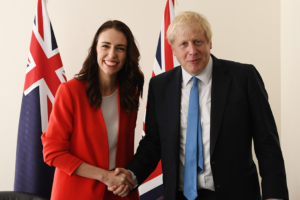
Last October, the UK struck a deal with New Zealand, a country so small and, in trade terms, insignificant, that it accounts for less than 0.2% of GDP. Even so, some have described the deal as a ‘threat to UK farmers’. Because Britain is no longer obliged to stick to EU-enforced product standards, new checks on British products have been introduced and the strict EU rules on animal products means that some UK products can no longer be exported. Both the EU and the UK will have to remain in close contact over such issues as workers’ rights and environmental protection, with the risk that if either side steps out of line, the other could introduce tariffs.
There have been other changes, too, some of them sounding strange. For instance, uncooked meats from Britain, such as sausages and burgers, will not be allowed into the EU unless that have been frozen to -18C. There will be more bureaucracy at ports and airports which will undoubtedly slow things down, too. Similarly, businesses in the service sector no longer enjoy automatic recognition. Businesses offering services, such as banking, architecture and accounting, and also doctors and chefs, will lose their automatic right of access to EU markets stemming from mutual recognition of qualifications, and will face some restrictions. UK citizens will need visas to stay in the EU more than 90 days in any 180-day period.
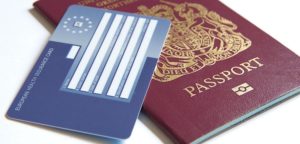
Current European Health Insurance Cards (EHICs) will remain valid until they expire but UK citizens will then have to apply for new types that are being introduced. Watch your mobile phone use, too, if you go abroad; the automatic ban on additional roaming charges has ended. Pet passports are no longer valid and in future new animal health certificates will be needed for each pet for every individual trip.
Fishing was a big issue that proved very hard to resolve but up to 2026, the UK could gradually gain more control over its own territorial waters and – theoretically – could ban EU vessels, although that would also allow our former partners to impose taxes on British fish (the fish won’t mind; they’ll be dead). Britain will have no further link with the European Court of Justice, which seems to be an issue that is especially dear to the hearts of Brexiters. Why? I’ve no idea. The right-wing populist newspapers, such as the Daily Mail, the Sun, the Daily Express, and the Daily Telegraph, were especially keen on putting distance between the ECJ and the UK and I’ve never quite understood the reason. Britain’s justice system does not have an especially exceptional record when it comes to protecting human rights, although those newspapers were incensed when the government’s proposal to prorogue parliament was thrown out. It seems to me that justice is justice, wherever it’s applied and if one of those newspapers thinks things should be otherwise, we can only assume they favour laws cherry-picked to serve their particular line of thought, rather than the fair and balanced variety.
At the time of writing, Boris Johnson is still Prime Minister of the United Kingdom, (it seems to be less united than it used to be), but he has been coming under increasing pressure over allegations of sleaze.

He tried to save an MP ally, Owen Patterson, who was accused of breaking the rules by lobbying his colleagues on behalf of two companies and earning around £100,000 (€120,000) a year to do so. He failed, and has since faced criticism for permitting and attending drinks parties at 10 Downing Street while urging the public to avoid socialising. Some people who were unable to say goodbye to dying loved ones are especially angry that while they were despairing about not being able to part properly, Johnson, his wife and others were whooping it up in defiance of his own rules. There are growing calls for him to go, but with an 80-seat majority he may ignore them.
Like much that has a European perspective, however, it’s the anti-EU rhetoric that defies rational thought. A Conservative MP of my acquaintance told me that his constituents are a nice, friendly bunch – but only until somebody mentions Europe. At that point they metaphorically froth at the mouth and stamp their feet. Why do they hate the continent so much? He doesn’t know, and it’s awkward for him because he has always been – within certain limits – pro-European, so he simply never mentions it. Partially, I suppose, we should blame Boris Johnson and his “fiction” posing as news. He wrote the items because they paid well and were popular, although all of us based in Brussels knew them to be untrue. It certainly means, however, that any hope we may have harboured of re-joining the EU one day must be set aside.
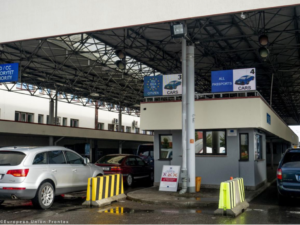
Many of those who voted leave would, according to some research, happily sign up to become the 51st state of America, believing it’s more like the UK than, say, France, Belgium or Germany, which proves, I suppose, that they haven’t really visited any of them, or at least not taken much notice of their surroundings while they were there. Either that or they have a real horror of trying to learn another language. Margaret Thatcher once said that: “Europe was created by history; America was created by philosophy”. No, I don’t know what she meant, either. If it was philosophy, it was the philosophy of breaking off from imperialist Britain, which is what George Washington and his troops wanted. It all begs the question: what – if anything – has Britain gained by leaving the EU? We must each keep our own council on the matter I suppose, but based on Brexit’s achievements so far, the expression “not a lot” would seem to fit the bill.

